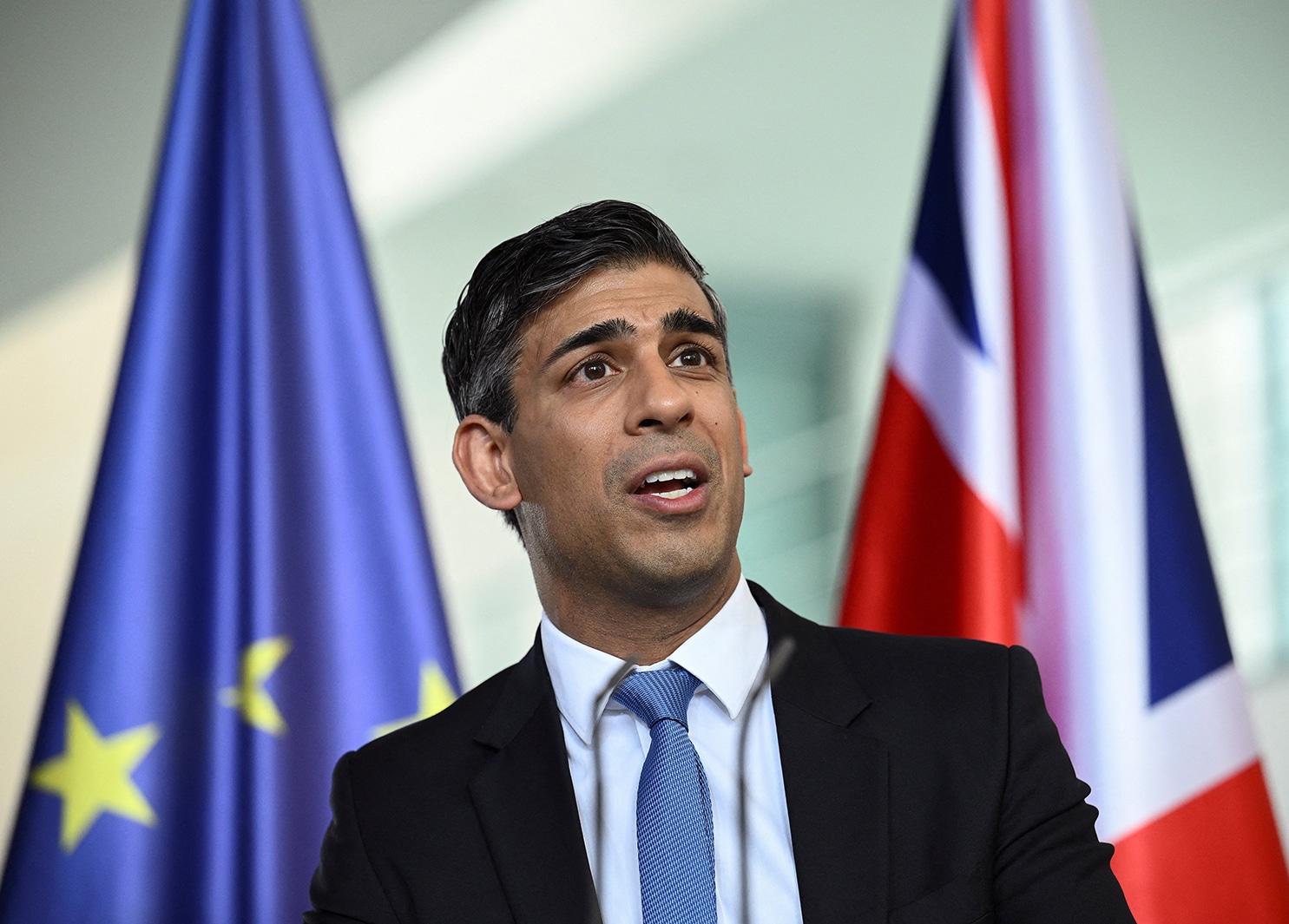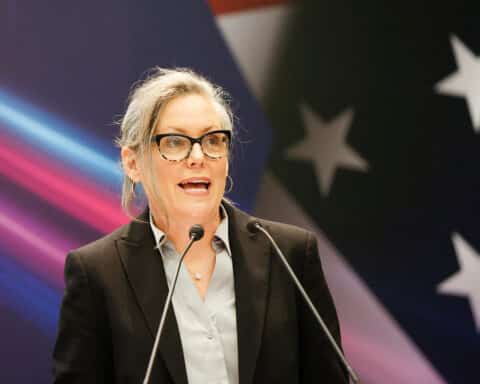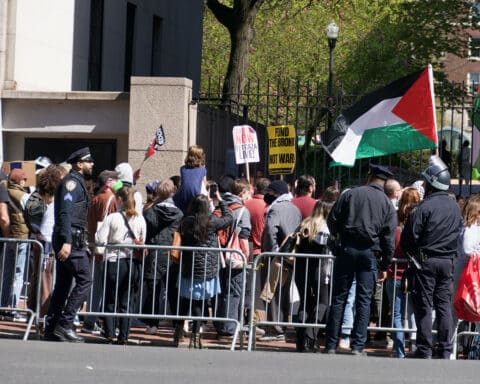OXFORD, England (OSV News) — Britain’s Catholic Church has condemned a government-backed law allowing migrants in the country illegally to be forcibly deported to Rwanda in East Africa.
“We retain deep misgivings” about the bill “for the precedent it sets at home and for other countries in how we respond to the most vulnerable. This includes victims of modern slavery and children wrongly assessed as adults,” the church’s lead bishop for migrants and refugees, Auxiliary Bishop Paul McAleenan of Westminster said in a joint April 23 statement with the Anglican Archbishop Justin Welby of Canterbury, and along with church leaders from Methodist, Baptist and United Reformed churches.
Church leaders’ condemn Rwanda deportation bill
“We note with sadness and concern the rise in hostility towards those who come to these islands seeking refuge and the way treatment of the refugee and asylum seeker has been used as a political football,” the church leaders said.
The bishop was reacting to the London Parliament’s April 23 enactment of a Safety of Rwanda (Asylum and Immigration) Bill, which could see the first deportations in July.
The vote, after two years of wrangling, coincided with the April 23 death of five people, including a child, attempting to cross the English Channel from France, with dozens of others, aboard a flimsy inflatable.
Call for compassion and justice
The joint statement said Britain’s churches deplored the latest “appalling loss of life” and favored “a system that shows compassion, justice, transparency and speed in its decisions.”
“There may be differences between our churches and Government on the means by which our asylum system can be fair, effective and respecting of human dignity, but we do agree that borders must be managed and that vulnerable people need protection from people smugglers,” said the statement.
“We are disappointed that the kindness and support offered by churches and charities to the people at the heart of this debate — those fleeing war, persecution and violence trying to find a place of safety — has been unjustly maligned by some for political reasons.”
Plans to send migrants to Rwanda, unveiled in early 2022 to deter illegal channel crossings, have been bitterly criticized by human rights groups, who welcomed a June 2022 order by the European Court of Human Rights barring the first flight from leaving.
The latest bill, compelling British courts and officials to treat Rwanda as safe, was drafted to circumvent a November 2023 Supreme Court ruling that transfers would be illegal because of the African country’s rights record.
Speaking April 22 before last-ditch amendments were voted down, U.K. Prime Minister Rishi Sunak said asylum-seekers would be detained within days, with flights to Rwanda continuing from July through the summer and beyond. “We are ready. Plans are in place. And these flights will go come what may,” Sunak said.
Legal challenges expected
However, legal challenges are expected against the deportations, which were branded a breach of the 1951 Refugee Convention by U.N. High Commissioner for Refugees Filippo Grandi and U.N. High Commissioner for Human Rights Volker Türk.
In a joint April 23 statement, the commissioners said the law would “set a perilous precedent globally” by restricting access to legal appeals, and “limiting the scope of domestic and international human rights protections for a specific group of people.”
“The new legislation marks a further step away from the UK’s long tradition of providing refuge to those in need”, Grandi said.
“This situation is even more concerning given that the legislation expressly authorizes the Government to disregard any protective interim remedies from the European Court of Human Rights.”
Calls for government action
Meanwhile, in an April 23 letter to Sunak, co-signed by 250 organizations, Britain’s Jesuit Refugee Service said the new law was not supported by “the wider public,” and would enable children and “survivors of trafficking and modern slavery” to be summarily expelled to a country they had no connection with, despite “grave risk of harm and human rights abuses.”
“Despite the clear ruling from the Supreme Court, the government is rewriting the facts so they can shirk our responsibilities to refugees,” the letter’s signatories said.
“The government must listen to the people, abandon this deplorable deal with Rwanda and similar plans with other countries, and protect those who need sanctuary,” the letter said.
Financial and practical considerations
Britain has paid over $400 million to the Rwandan government of President Paul Kagame to prepare reception centers for deported migrants, and is widely expected to use military aircraft, following an April 22 warning by U.N. experts that commercial airlines could be legally complicit in facilitating “unlawful removals.”
One of the housing spots for returned migrants would be Rwanda’s Hope Hostel that once housed young genocide survivors, the African nation’s most horrific period in history when an estimated 800,000 Tutsis were killed by extremist Hutus in massacres that lasted over 100 days. On April 7, the world marked the 30th anniversary of the start of the genocide.
Meanwhile in a statement separate from the church leaders’ joint message, Bishop McAleenan said the law failed to address the urgent need for more “safe and legal routes” for asylum-seekers, adding that he hoped those who drowned in the channel April 23 “instead of reaching a place of sanctuary” would rest in peace.





